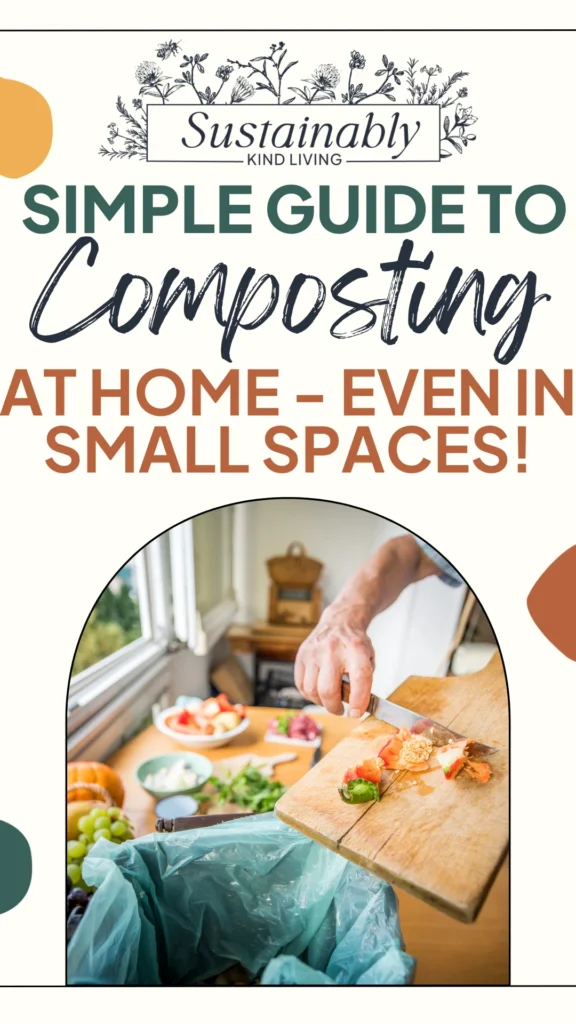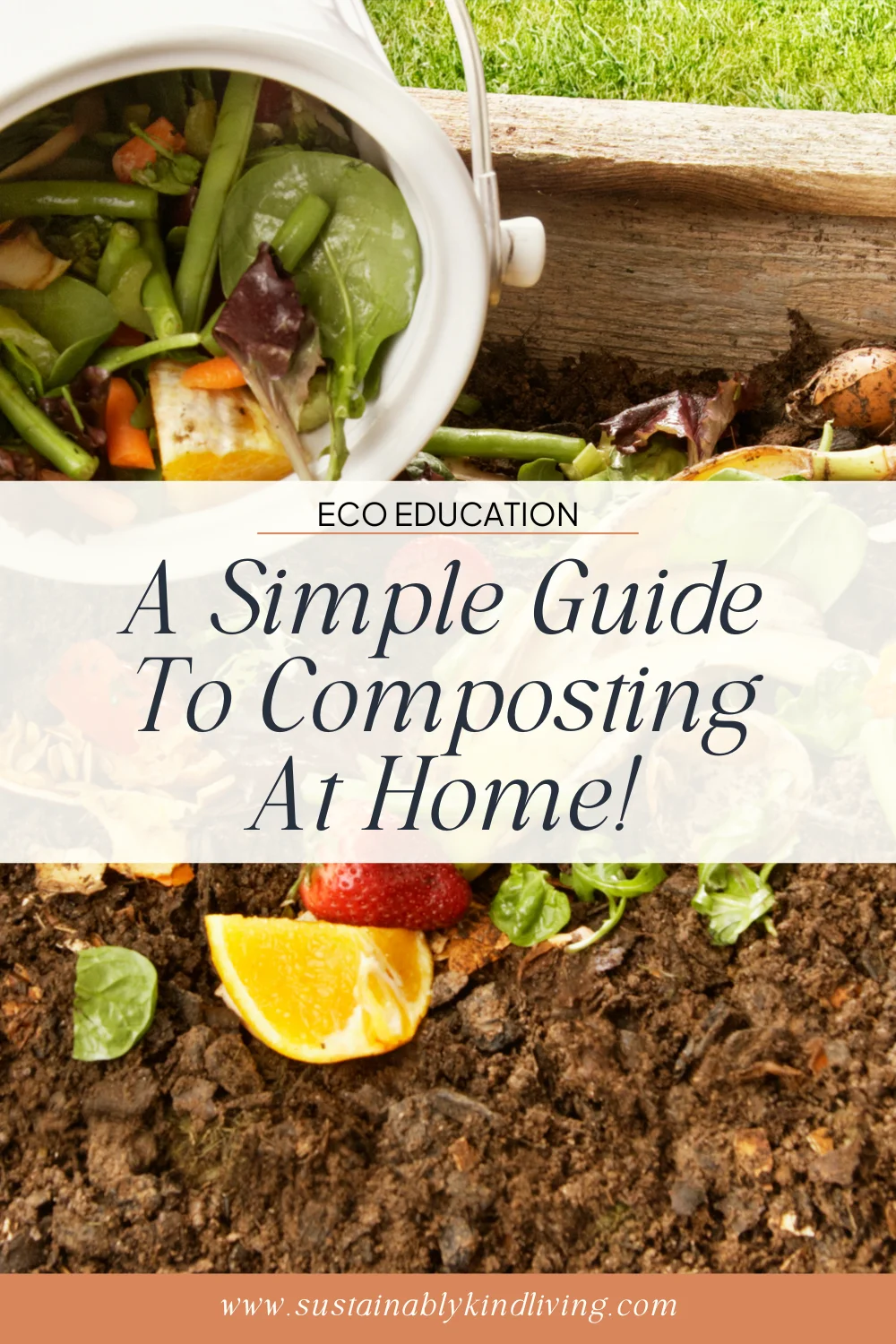SKL is reader supported. When you buy through links on our site, we may earn affiliate commission. Learn more here.
Updated on April 4, 2024
Composting is a very important thing to do to reduce our carbon footprint. It gives food scraps the optimum conditions for decomposition, which they wouldn’t have if they were thrown into general waste.
General waste is sent to landfills (or incineration facilities), where organic waste sits among non-compostable.
This prevents the waste from decomposing properly, as it lacks access to oxygen. Instead, it stays in the landfill for much longer and produces methane.
If you live in an apartment or small space, you may think it’s impossible for you to compost – while that’s completely untrue!
The options for composting at home are evolving, making it possible for all of us to decrease our impact.
P.S. Don’t forget to check out The 10 Best Natural Homemade Fertilizers For Indoor Plants!
Simple Guide To Composting At Home:
1. Council Food Waste Collections
If you’re lucky, your local council may be collecting food waste to send to an industrial composting facility.
This is by far the easiest way, as you usually only need to store the food scraps in a small bin for a few days before they’re collected.
This option often isn’t mentioned in apartment composting guides, but certainly make sure to use it if it’s available to you, as you don’t have to maintain the compost or travel anywhere!
If there is no such service provided by your council in your area, it’s also worth checking if there are any paid, private companies providing this option.
2. Community Gardens
If there’s a community garden in your area, it probably has a compost you can use. See if you can join your community garden and use its compost to dispose of your scraps.
This may also be a great way to get into some gardening and meet like-minded people from your local area.
Some farmer’s markets also have compost piles, so it may be worth looking into whether that’s true for your local one.
3. Friends With A Garden
Here’s one you may not have thought about – if you live in an apartment, but have friends or family members you visit regularly who do have a house with a garden, why not use their compost?
They surely won’t mind, as long as you’re making sure to only put truly compostable items in their compost pile!
This is a simple way to compost your scraps without any financial or time costs associated with the other options.
No friends or family in the area? You may be able to find someone who’d be happy to let you use their compost online! Look on social media for local groups, especially if they’re sustainability or community-focused.
4. Worm bins/Vermicomposters
Worm bins, or vermicomposters, are one of the most popular ways to compost your waste in an apartment.
They’re small, portable, and discrete – an ideal option you can use even in a small home. It also speeds up the composting process, thanks to the worms added to your compost, and produces worm juice, a wonderful fertilizer.
You also don’t need to turn the compost regularly, as the worms do that for you. All you need to remember is to feed the worms with your food waste regularly.
You can buy a ready-made worm bin in a store or make your own. Both these options contain two or three floors and small holes to let the air pass through.
Once you have your composter, you’ll just need to order the worms for your bin. Generally, you’ll need a pound of worms per square foot of compost.
A worm bin will be right for you if you’re looking for a compact way to get rid of a moderate to a small amount of organic waste, in a small space.
You’ll need some cardboard or newspaper to compensate for the high nitrogen content from all the food scraps you’re using.
Lastly, to keep your worms safe and healthy, you’ll need to keep the bin in a room that’s between 40 and 80 degrees Fahrenheit, so keep in mind if you have access to any such space.
5. Countertop Food Digesters
Another option for those who have no outdoor space is a countertop food digester. While they don’t compost the waste per se, they still turn your waste into good fertilizer for your plants.
One big benefit of these devices is that they don’t smell and take up very little space (they’re about the size of a bread-maker).
These can also process scraps that you wouldn’t otherwise be able to add to compost, such as avocado pits or bones.
Soooo… How do WE compost in our apartment?
I have a small countertop compost bin that I keep in our kitchen – near the window.
We eat a LOT of vegetables so once this gets full, I transfer it to my compostable green bags that I simply place on the balcony in a medium-sized trash can with a lid.
Every Thursday, I combine the compost and walk it over to the community compost drop-off in the city. The drop-off point is right next to Martin’s work, so it’s always “on the way”!
If you enjoyed this article, check out these other community favorites below!
- The 5 Best Electric Countertop Composters To Fight Food Waste
- The 10 Best Natural Homemade Fertilizers For Indoor Plants
- 15 Best Indoor Garden Systems | Tested & Reviewed









+ show Comments
- Hide Comments
add a comment